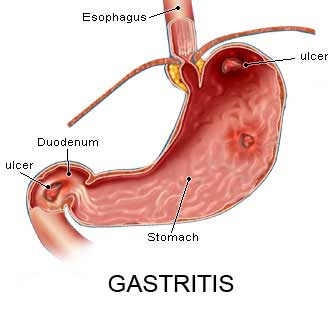
GERD stands for Gastroesophageal Reflux Disease. It’s a chronic condition where stomach acid flows back into the esophagus/throat. This backward flow can irritate the lining of the esophagus and cause uncomfortable symptoms. Many people use the terms acid reflux, heartburn, and GERD interchangeably, but they aren’t exactly the same. Heartburn is a symptom often described as a burning sensation in someone’s chest or throat. Acid reflux is the occasional backward flow of stomach acid. GERD is the more serious, long-lasting form of acid reflux that happens often, usually more than twice a week.
GERD can affect people of any age but is most common in adults over 40, especially those who are overweight, pregnant, or have a hiatal hernia (a small opening in the diaphragm that lets part of the stomach move up into the chest). Certain lifestyle habits like eating large meals, lying down right after eating, smoking, or drinking alcohol can increase the risk. Some medications can also make symptoms worse.
If GERD is left untreated, it can lead to more serious health problems. Over time, the acid can damage the lining of the esophagus, leading to esophagitis (inflammation), narrowing of the esophagus (strictures), or even a condition called Barrett’s esophagus, which may slightly increase the risk of esophageal cancer. GERD can also cause chronic coughing, sore throat, or trouble sleeping due to nighttime symptoms.
There are many things someone can try at home to reduce GERD symptoms. These include eating smaller meals, avoiding trigger foods (like spicy or fatty foods, chocolate, caffeine, and citrus), not eating within 2–3 hours of lying down, raising the head of the bed, losing weight if needed, and wearing loose-fitting clothes. Over-the-counter antacids (like Tums or Rolaids), H2 blockers (like Pepcid), or proton pump inhibitors (like Prilosec or Nexium) may help if symptoms are occasional.
If symptoms happen more than twice a week, don’t improve with home remedies, or interfere with daily life, it’s time to see a doctor. A healthcare provider may recommend stronger medications, run tests (like an upper endoscopy), or refer you to a gastroenterologist. In some cases, surgery may be an option if other treatments don’t work.
There are also serious symptoms that mean you should seek medical attention right away. These include chest pain (especially if it's severe or feels like pressure), difficulty swallowing, vomiting blood, unexplained weight loss, or black or tarry stools (a possible sign of bleeding). These could mean something more serious is going on and should not be ignored.
The good news is that with the right steps, GERD is very treatable. Most people feel much better by making changes at home and using medication when needed. The key is not to ignore frequent symptoms and to seek care early, so complications don’t develop. With proper management, most people with GERD can lead comfortable, healthy lives.
Dr. Allen Fellers is a resident physician who sees patients of all ages and provides obstetrical services at Lone Star Family Health Center, a non-profit 501©3 Federally Qualified Health Center operating facilities in Conroe, Spring, Willis, Grangerland, and Huntsville, and serving as home to a fully integrated Family Medicine Residency Program to increase the number of Family Medicine physicians for Texas and our community.



